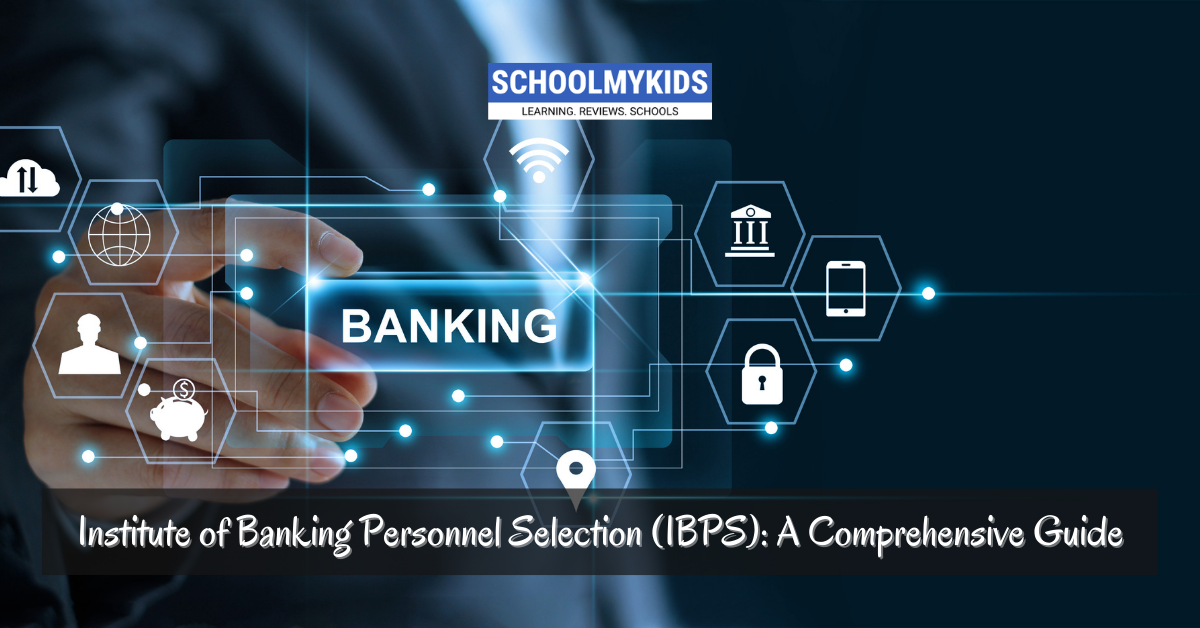The Institute of Banking Personnel Selection (IBPS) conducts a range of examinations to recruit candidates for various banking positions in public sector banks in India. This article provides a detailed overview of the IBPS exams, including their structure, preparation strategies, and the significance of the banking jobs they lead to.
Understanding the IBPS Exams
The IBPS conducts several exams for different banking positions, including:
- IBPS Probationary Officer (PO) Exam
- IBPS Clerk Exam
- IBPS Specialist Officer (SO) Exam
- IBPS Regional Rural Banks (RRB) Exam
Each of these exams follows a multi-stage selection process to assess the candidates' aptitude, knowledge, and suitability for banking roles.
IBPS PO Exam
The IBPS PO exam is conducted in three stages:
- Preliminary Examination: An objective-type exam testing English Language, Quantitative Aptitude, and Reasoning Ability.
- Main Examination: An objective and descriptive exam testing Reasoning & Computer Aptitude, General/Economy/Banking Awareness, English Language, Data Analysis & Interpretation, and a descriptive test in English.
- Interview: The final stage where candidates are assessed on their personality, communication skills, and banking knowledge.
IBPS Clerk Exam
The IBPS Clerk exam also has a three-stage selection process:
- Preliminary Examination: An objective-type exam testing English Language, Numerical Ability, and Reasoning Ability.
- Main Examination: An objective exam testing General/Financial Awareness, General English, Reasoning Ability & Computer Aptitude, and Quantitative Aptitude.
- Language Proficiency Test (LPT): Some banks may require candidates to clear a language proficiency test in the local language of the state they are applying to.
IBPS SO Exam
The IBPS SO exam recruits Specialist Officers in various fields like IT, Agriculture, Marketing, HR, and Law. It consists of:
- Preliminary Examination: An objective-type exam testing English Language, Reasoning, and General Awareness with special reference to the banking industry.
- Main Examination: A professional knowledge test specific to the specialist role applied for.
- Interview: The final stage where candidates are assessed on their professional knowledge, personality, and communication skills.
IBPS RRB Exam
The IBPS RRB exam recruits candidates for Regional Rural Banks. It includes:
- Preliminary Examination: An objective-type exam testing Reasoning and Numerical Ability.
- Main Examination: An objective exam testing Reasoning, Numerical Ability, General Awareness, English/Hindi Language, and Computer Knowledge.
- Interview: The final stage for Officer posts, assessing the candidate’s suitability for rural banking roles.
Preparation Strategies for IBPS Exams
Preparing for the IBPS exams requires a strategic and disciplined approach. Here are some key strategies for aspirants:
- Understand the Syllabus and Exam Pattern: Familiarize yourself with the detailed syllabus and exam pattern for the specific IBPS exam you are preparing for. Knowing what to study and how to approach each paper is crucial for effective preparation.
- Develop a Study Plan: Create a realistic and well-structured study plan. Allocate time for each subject, revision, and practice tests. Consistency and discipline are key to staying on track.
- Read Standard Books and Reference Materials: Refer to standard textbooks and reference materials for each subject. Focus on understanding core concepts and their applications.
- Practice Previous Year Papers: Solving previous year question papers helps in understanding the exam pattern and types of questions asked. It also aids in time management and identifying weak areas.
- Stay Updated with Current Affairs: Regularly read newspapers, magazines, and online resources to stay updated with current affairs, especially those related to banking and finance.
- Take Mock Tests: Regularly take mock tests to assess your preparation level. Mock tests help identify strengths and weaknesses, improve time management, and build exam temperament.
- Revise Regularly: Revision is essential to reinforce what you have learned. Regularly revise your notes and key concepts to ensure retention and recall during the exam.
Challenges and Rewards of IBPS Preparation
Preparing for the IBPS exams is a rigorous and demanding process. Aspirants often face challenges such as vast syllabus coverage, time management, and maintaining motivation. However, the journey is equally rewarding in terms of personal growth and the eventual goal of securing a banking job.
Challenges
- Vast Syllabus: The extensive syllabus can be overwhelming. Breaking it down into manageable sections and focusing on one topic at a time can help.
- Time Management: Balancing study time with personal life can be challenging. A well-planned schedule and setting realistic goals are essential.
- Stress and Motivation: The long preparation period can lead to stress and burnout. Maintaining a positive attitude, taking breaks, and seeking support from family and peers are crucial.
Rewards
- Personal Growth: The preparation process enhances critical thinking, analytical skills, and knowledge across various subjects.
- Career Opportunities: Clearing the exam opens doors to prestigious career opportunities in public sector banks.
- Job Security and Benefits: Banking jobs offer job security, attractive benefits, and a respectable position in society.
Conclusion
The Institute of Banking Personnel Selection exams are a journey of determination, perseverance, and unwavering commitment. While the path is challenging, the rewards of securing a banking job are unparalleled. With the right strategy, consistent effort, and a deep sense of purpose, aspirants can achieve their dream of joining the esteemed banking sector and contributing to the nation's financial growth and stability.








Be the first one to comment on this story.